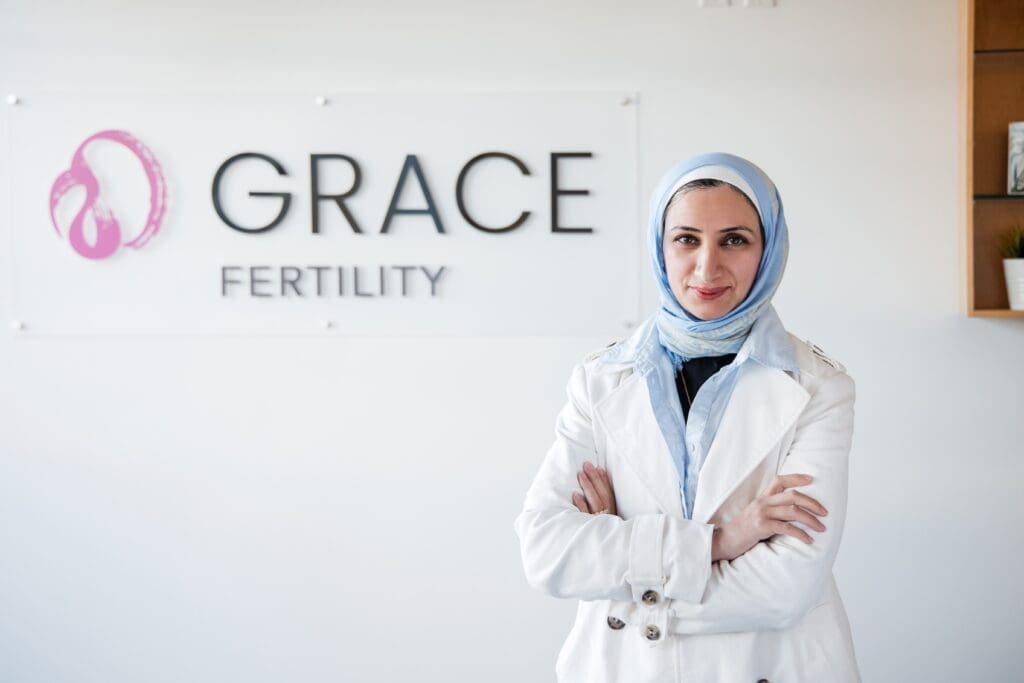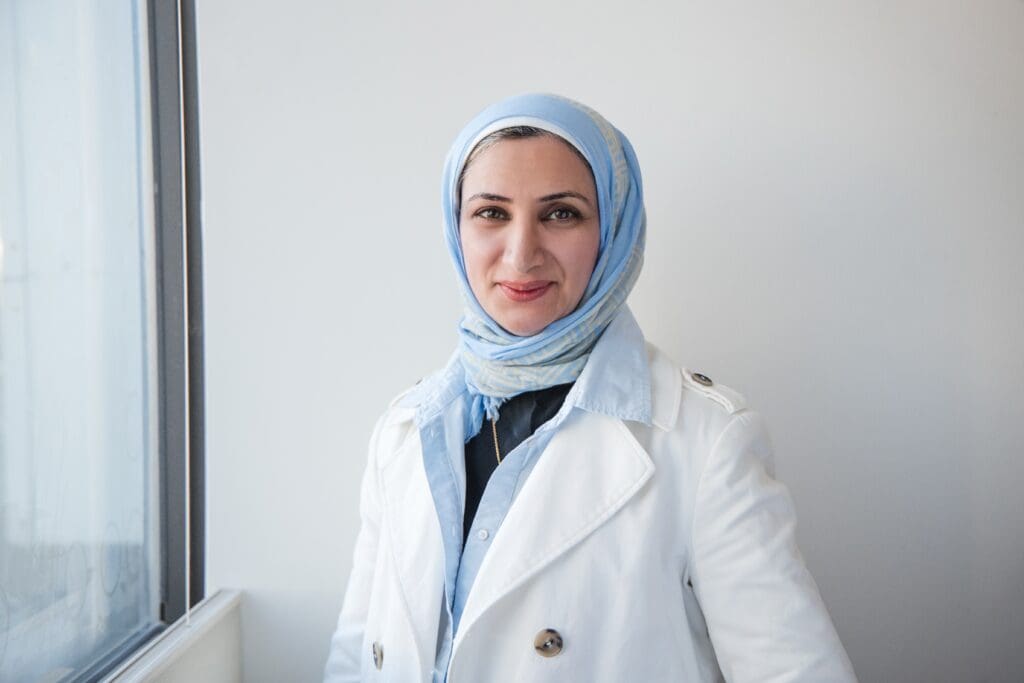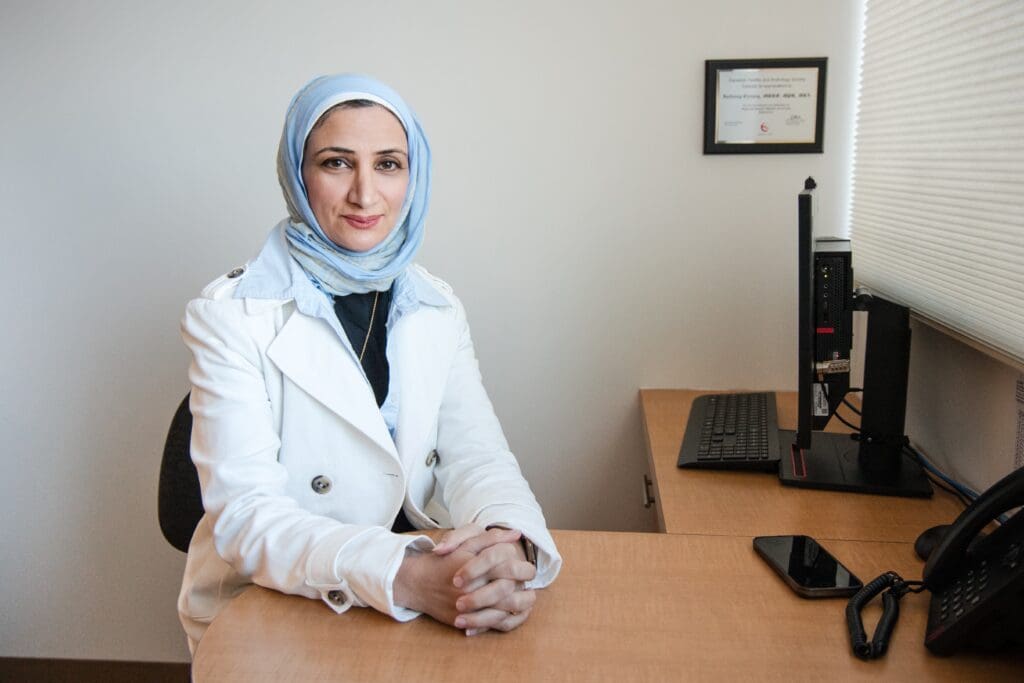With Canadian Fertility Awareness Week (April 20-26) on the horizon, conversations around fertility treatment, accessibility, and planning are more relevant than ever. Starting April 1, 2025, British Columbia will roll out a publicly funded IVF program, covering a single cycle of treatment and medication. But what does this mean for hopeful parents navigating their fertility journey?
Dr. Ghadeer Akbar, a leading fertility specialist at Grace Fertility in Vancouver, joins us to break down the latest advancements in fertility care, the impact of this new funding, and what Canadians need to know about taking control of their reproductive health. —Noa Nichol
With Canadian Fertility Awareness Week approaching, what do you think are the biggest misconceptions Canadians have about fertility treatments?
One of the biggest misconceptions Canadians have about fertility treatments is that they should only seek help once they are already struggling to conceive. In reality, early assessment and planning can significantly improve chances of conceiving and reduce the emotional and financial burden of treatment. By being proactive and understanding their options, individuals and couples can make more informed decisions and increase their chances of getting pregnant.
The new publicly funded IVF program in BC starts in April 2025. How will this impact access to fertility treatments, and what should patients know about eligibility?
While details on eligibility, age restriction, and waitlist procedures are still pending, it would be beneficial to have all required diagnostic testing and have a consultation with a fertility specialist before April. This will ensure patients are in the best position to access funded treatment as soon as the information becomes available. I would strongly encourage them to complete diagnostic testing and book an appointment with us as soon as possible.
How does proactive fertility planning, including egg freezing and IVF, benefit individuals who may not be ready for parenthood yet?
It’s never too early to consider preserving your eggs through egg freezing and IVF. In fact, the earlier you proceed, the better your chances of a successful pregnancy in the future. As women age, egg quality naturally declines, and by freezing eggs at a younger age, you can preserve healthier eggs for later use if you choose to conceive down the road.
Egg freezing is like preparing for a class ahead of time; it’s always beneficial to be proactive!
What are some of the latest advancements in fertility care that are improving success rates for patients?
IVF success rates continue to improve with innovations like pre-implantation genetic screening. At Grace Fertility, we offer a non-invasive genetic screening method called EMBRACE, which is exclusive to our clinic in BC. This technique collects DNA from the culture medium—a drop of liquid where the embryo develops—without disturbing the embryo itself. By analyzing this DNA, we can make more informed decisions about which embryos to transfer, increasing the likelihood of a healthy pregnancy.
Endometriosis and other reproductive conditions can make conception more challenging. How does Grace Fertility personalize treatment plans for these patients?
At Grace Fertility, we take a highly personalized approach to treatment, ensuring that each patient receives care tailored to their unique needs. With years of experience, our team has the expertise to navigate a wide range of cases, from straightforward to complex. We take the time to understand each patient’s medical history, goals, and personal circumstances, allowing us to recommend only the most appropriate treatment options. Our focus is on providing compassionate, individualized care that supports patients in building the family they hope for.
What role does lifestyle, including diet, exercise, and stress management, play in optimizing fertility outcomes?
Lifestyle, diet, exercise, and stress all play a crucial role in optimizing fertility outcomes. While some factors are genetic, others, like maintaining a healthy diet, regular exercise, and managing stress, can improve chances of conception. Avoiding smoking, drugs, and excessive alcohol consumption also supports fertility health. By focusing on these controllable factors, you can enhance the success of your fertility treatments.
Many Canadians are concerned about the financial aspect of fertility treatments. How can they make the most of government incentives and financial planning to support their journey?
Government incentives are a positive and much-needed step in supporting Canadians who wish to conceive. My advice to families is to educate themselves about available financial resources but not to wait to start treatment. Time is crucial in the fertility journey, especially as you get older, so it’s important to take action sooner rather than later. The younger you are when you begin, the better your chances, and delaying treatment until funding becomes available may not be in your best interest.
Grace Fertility emphasizes a high-touch, personalized approach to care. How does this patient-centered approach improve outcomes and experiences for those undergoing treatment?
At Grace Fertility, we take the time to truly get to know and understand our patients. We provide the attention they need and ensure their questions are always answered so they feel valued and supported. With our experience in solving even the most complex fertility challenges, we develop tailored treatment plans that offer the best possible chance of pregnancy success.
For individuals or families facing infertility, the emotional toll can be significant. What resources or support networks do you recommend to help navigate this journey?
Our team has a genuine interest in our patient’s health and overall well-being. Our teams are available to provide guidance, information, and resources along the way, and our website provides resources and education on fertility basics that might be helpful throughout a patient’s journey. At Grace Fertility we have 2 doctors, myself and partner Dr. Cheung. Every patient will have a one on one consultation with either of us. Our nurses are available by phone and are happy to talk as long as you need regarding your options, next steps and any questions you may have. More support networks can be found here.
What advice would you give to someone just starting their fertility journey who may feel overwhelmed by the options and information available?
My biggest piece of advice comes from a lesson I’ve learned from my patients: the importance of patience and resilience. Keep going. Keep advocating for yourself. Infertility can be a challenging journey, and it’s crucial to stay focused on each day, taking things step by step. Keeping a positive mindset and trusting the process can make a significant difference in managing the emotional ups and downs of the journey.
MSP (Medical Services Plan) will continue to cover fertility consultations and most assessments. If you are struggling to conceive, have concerns about your fertility, or would like to take a proactive approach to building your future family, we encourage you to book a full fertility assessment as soon as possible.




Be the first to comment